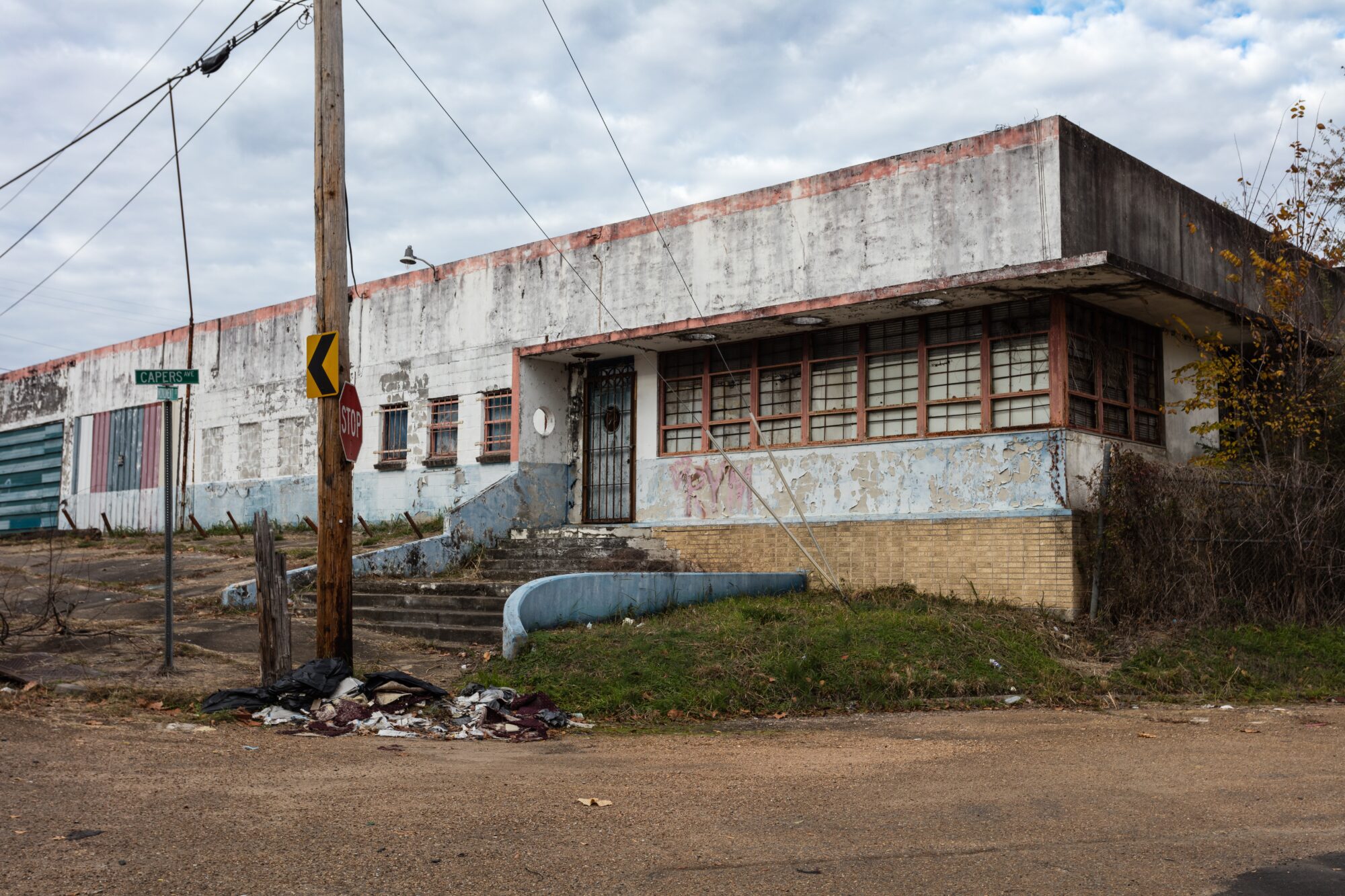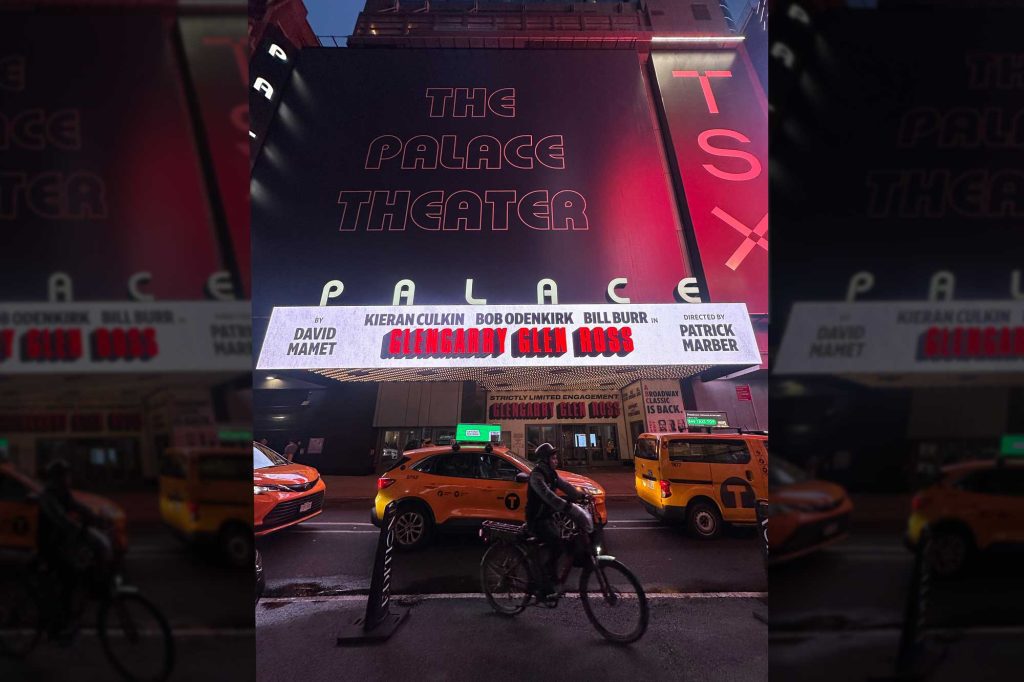
(Photo from R Wellen Photography | Shutterstock)
- Empty homes often become havens for drug related crimes while attracting homeless individuals and squatters into neighborhoods.
Within the state of Mississippi, one city has roughly 25 percent of the state’s total abandoned properties. That municipality is the city of Jackson.
The Capital City’s larger than average percentage of abandoned properties brings with it a number of problems for local officials.
“It would begin with public safety itself, and that’s really one of the key reasons that people choose to abandon their properties and leave is because they don’t feel safe,” said Ward 1 City Councilman Ashby Foote.

A property can become abandoned for a variety of reasons. A homeowner could die or be unable to sell the property after moving away. A bank might foreclose on the owner, or a tenant might vacate the property without another renter ready to move in. If taxes on those properties are not paid for long enough period of time, the properties eventually fall into state ownership until it can be sold.
By the Numbers
According to Tyronne Hickman, Bureau Director of the Public Lands Division of the Secretary of State’s office, as of August 2024, his office listed about 1,800 state-owned abandoned properties within the City of Jackson. Comparatively, statewide there are about 7,000 properties that are state-owned, according to the Secretary of State’s rolls. That equates to close to 25 percent of all abandoned properties under state ownership in Jackson alone.
William (Bill) Chaney, Assistant Secretary of State Public Lands Division, added that the number of properties changes regularly.
“As we actively sell property, it changes,” Chaney described. “I wouldn’t say hourly, but it certainly changes daily.”
However, Councilman Foote notes that those figures do not reflect the true number of abandoned properties in the City of Jackson, or the state, since it can take between two to eight years before they become part of the State’s rolls.
New properties are added twice a year. Counties in the Delta hold tax sales in April. Other counties hold sales in August, according to Chaney. He estimates that for every property on the Secretary of State’s rolls, there are three or four more abandoned properties that have not gone through the tax sale process.
Only a fraction of those properties is commercial, Hickman said, as about 95 percent of abandoned properties are within areas zoned residential.
How Property Falls Under State Ownership
Properties that become temporarily state-owned are recorded by the Secretary of State’s office. The process starts with the owner not paying their property taxes for two years. After legally required attempts to notify the owner have failed, the property goes up for tax sale.
During the tax sale a private party can pay the back taxes and begin the process of assuming ownership of the property. If no private party pays the back taxes, the property falls to state ownership.
“It sits basically in limbo for (the property owner) to come in and pay one or two years of back taxes to get it back,” Chaney described. “So, we’ll get it that third tax sale year.”
Under extreme circumstances, that time frame can be even longer.
“There are those special cases where tax investor ‘A’ might buy it one year, then tax investor ‘B’ might buy it another year, tax investor ‘C’ and then ‘D’, and that could push it out about six to seven years before we get it,” Hickman explained.
The properties are often in a state of serious disrepair by the time they become state-owned. That fact can make some people assume the Secretary of State’s office is to blame.
“It’s not like we ran it down, we got it in a bad shape,” Chaney added. “Usually, people see a piece of bad property, and they just assume it’s ours. Probably 90 percent of the time it’s not.”
Councilman Foote notes that it would be unreasonable for the Secretary of State’s office to be able to maintain such a large number of properties.
Population Decline
The issue of abandoned properties is further reflected in the population decline within the City of Jackson.
Councilman Foote points to Census data from 2010 that shows Jackson had a population of about 173,000. Ten years later, the 2020 Census showed a population of under 153,000. The steep population loss led to a recent need to reconfigure ward boundaries to stay compliant with federal voting rights laws.
“To lose 20,000 people when you’re a city of 173,000, that is about an 11.5 percent drop in population of a city of that size,” Foote described. “It impacts your taxes.”
Other factors affected by population decline include reductions in sales tax collections, the loss of commercial amenities, and school closures, which Jackson Public Schools have navigated this year.
Further, while owned by the state, abandoned properties do not generate ad valorem taxes.
As for the loss of revenue to the city and county in ad valorem taxes, Chaney and Hickman said it’s hard to determine a true value. Given that those properties typically sit for a number of years before they get to the Secretary of State, the value drops.
When a private party begins the buying process of an abandoned property, only then is a value assessed.
Homeless Hotbeds
When a house becomes abandoned, Councilman Foote said the property draws in the homeless or squatters.
“Homeless is really a misnomer that the problem is a lack of homes, and that is not the problem in Jackson,” Foote explained. “We don’t have a problem of a lack of homes, we have thousands of homes that have been abandoned.”
Abandoned commercial properties, while not as common as residential, can also become havens for the homeless, squatters and illegal activity. Councilman Foote used Hotel O, located near I-55, as a prime example. The former motel, now abandoned by the owner, draws in vagrants and squatters and even is cited as a factor in the closure of a nearby Waffle House, Foote said.
“It can become a sort of negative feedback loop, where you start to see businesses close and as businesses close that impacts the citizen’s confidence and they start leaving even though they have a hard time selling property,” Foote described, noting two areas of the city with larger concentrations of abandoned properties.
“So, it’s very discouraging when you’re driving down south Jackson and west Jackson in some of those neighborhoods.”
Crime In & Near Abandoned Property
Councilman Foote said the increase in crime is another reason abandoned properties concern him.
“So, there is a symbiotic relationship between crime and abandoned properties,” Foote elaborated. “If you look at the maps of crime and map of the city for the past 6 months, and abandoned properties, there is a correlation there. Empty properties can be a hot bed for criminal activity, gang related or otherwise.”
Jackson Police Chief Joseph Wade said that during his time as the city’s top cop starting in June 2023, he has not noticed that gang activity is connected with abandoned properties.
“But yes, we do have a gang issue in the city of Jackson,” Wade elaborated. “I’ve been one of the first chiefs that has admitted there is a gang issue. But most of our issues are not surrounding abandoned properties. They are more or less on the streets in open areas and neighborhoods, whether it be a park or convenience store or at someone’s residence.”
However, the Jackson Police Department and Capitol Police have noticed that blighted and abandoned properties do attract illicit behavior, such as drug use, the sale of narcotics and at times, prostitution.

Capitol Police Chief Bo Luckey said his officers currently do not patrol a lot of areas that have abandoned properties, but they are prepared when it does happen. He recognizes that drug activity typically leads to additional offenses due to altercations.
“When you’re dealing with any kind of drug crimes, usually you can expect there’s going to be guns involved,” Luckey added.
When reports of loitering, narcotics activity and people approaching vehicles in an area occur, Luckey said his officers increase patrols in those areas.
“All we can do is stay on top of the issues and make sure we are seen and keep the criminal element at bay,” Luckey said.
An empty home can be a nice place for someone looking for a warm place to sleep with no other options. During their stay, they may decide to start a fire to keep warm which concerns Chief Wade.
“The first thing we run into are squatters, or residents who don’t have the utilities like electricity, water, they may sometimes embark upon getting illegal hookups,” Wade described. “Even outside of the squatters, we do have a large population of homeless who will go inside these locations when it’s cold and end up setting those properties on fire.”
After the flames are extinguished, all that is left is a burned building in the midst of a neighborhood. Chief Wade said those properties, whether burned or just abandoned, create eyesores. Overgrown brush and trash associated with unoccupied homes also attract vermin, raccoons and possums, affecting neighbors. All of those issues combine to drag property values down, Wade added.
“I would like to see some type of initiative to address this issue,” Wade said. “Not necessarily just from a law enforcement perspective but from a community perspective.”
Jackson Police officers have and continue to respond to calls from neighbors concerning suspicious activity at known abandoned properties.
“When we go to those properties and there’s someone there who has no reason to be there, we challenge them about what their business is, why they’re there,” Wade described. “Most of them will go ahead and move on. A lot of times they are not there to squat, they are there to steal.”
To Councilman Foote, reducing crime comes down to police presence, and that is where the expansion of the Capitol Complex Improvement District can help. The recent expansion means the nearly 120 officers with the Capitol Police can work in conjunction with Jackson Police Department’s 260 sworn officers to cover more of the city’s streets.
“I’m glad we got the CCID,” Foote stated. “I think that is a constructive element, because really it comes down to police presence. At the end of the day, you really need police out there on the streets, enforcing the law and responding to the criminal element, and holding people accountable.”
Next Steps
One of several ways Councilman Foote believes the City of Jackson can recover is to restore public safety to the affected areas.
When public confidence returns, more private developers will be willing to either demolish or repurpose affected properties, he said.
In an effort to address the problem, the Jackson City Council voted in June to form a 15-member task force comprised of representatives from the city, county and state. The hope is to add someone from the federal level as well.
The task force’s goal is to offer solutions. Public meetings are expected to take place in the near future.









